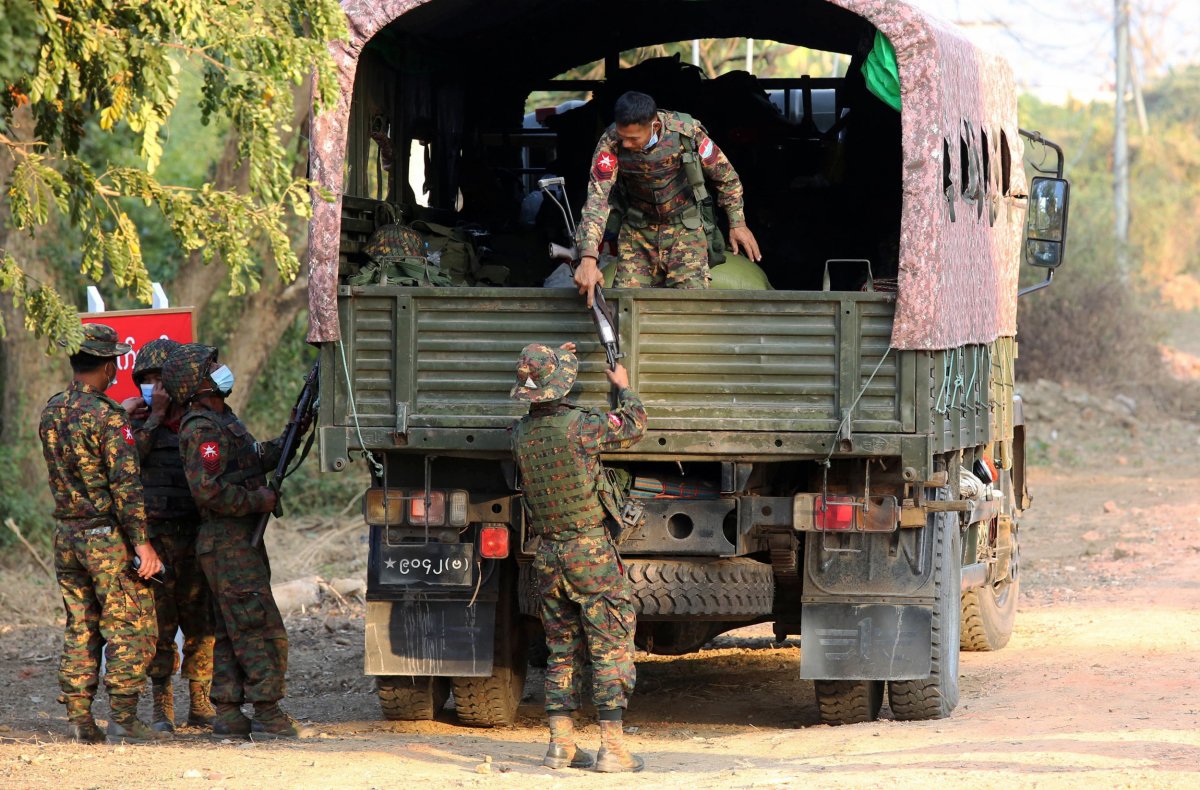In the early morning of February 1, Myanmar's powerful military staged an operation against the civilian-led government that can only be categorized as a coup.
State Counselor Aung San Suu Kyi, the 1991 Nobel laureate who spent 15 years under house arrest for campaigning against the military regime, was arrested along with top officials in her National League for Democracy party.
Hundreds of NLD lawmakers are now ensconced in their living quarters, under guard, unable to leave. Communications have been cut, ATMs have been temporarily shuttered, the flags of Suu Kyi's party are being taken down and the military is now returning to its previous role as the de-facto authority under a one-year state of emergency.
The reaction in Washington was swift. President Joe Biden went out of his way to release a statement in his name sharply condemning Myanmar's military, known as the Tatmadaw, for its "direct assault on the country's transition to democracy and the rule of law."
On February 2, the Biden administration officially labeled the military's overthrow of the elected government a coup, necessitating a review of all U.S. assistance to the Southeast Asian nation.
Lawmakers across the political aisle are calling for the imposition of strict sanctions against Myanmar's generals (many of them are already under sanctions for their involvement in what has been widely termed a genocide against Rohingya Muslims). The probability of Washington retaliating for the coup is near certain; in situations such as these, the bias toward action is strong and widespread.
Yet as unfortunate as the subversion of Myanmar's fleeting democracy is, the Biden administration's options for rectifying it are quite limited. The coup in Naypyitaw is an apt example of how even the most powerful country on the planet can often find itself powerless when it comes to the internal politics of other states. This is an incredibly frustrating reality for many in Washington who firmly believe the United States has a universal and unalienable calling to serve as the world's rapid-response emergency service. But it's a harsh reality nonetheless.
The Biden administration is reviewing a number of options to punish the Tatmadaw for its transgressions. Most, if not all, of those options are punitive.

A cutoff of U.S.-Myanmar relations is a possibility, but limiting diplomatic channels at a time when Myanmar's generals are running the show is a great way of limiting Washington's own access and visibility into the country. Visa bans and asset freezes via the Global Magnitsky Act are at the top of the list, but many of Myanmar's generals—including Min Aung Hlaing, Myanmar's commander in chief—are already subjected to those penalties for their inhumane crackdown on the Rohingya population.
Discussing the issue at the U.N. Security Council would bring Myanmar onto the international stage, but speechifying can only do so much. Tabling a draft resolution at the Security Council is also a symbolic exercise since any draft Washington or the Europeans propose won't survive a veto by China, who is keen on maintaining a decades-long economic and political relationship with the Tatmadaw.
Economic sanctions, too, are hardly a magic bullet. While lawmakers and policymakers alike love to tap the sanctions tool early and often (there were hundreds of sanctions bills introduced during the last Congress), the method has been overused across successive U.S. administrations. Over time, this overuse can undermine the power of the U.S. financial system as other countries begin searching for alternatives to the U.S. dollar in order to insulate themselves from extraterritorial U.S. sanctions.
Use sanctions against the same targets long enough, and those targets begin to master the skill of evasion. Like Iran, North Korea and Syria, the Tatmadaw is not a stranger to U.S. import banks, financial penalties and aid cutoffs.
Before Myanmar's generals permitted civilians to take a greater leadership role in running the country's politics, they were international pariahs iced out of the U.S. financial system. The junta spent decades under Washington's boot, learning to maintain their own power and wealth while Myanmar's population sunk to the depths of depression and poverty. Going back to those times wouldn't be a shock to the generals, but rather a return to the status-quo ante.
Nobody in the world who values human rights and the rule of law likes what is going on in the streets of Myanmar's capital city right now. Soldiers sweeping into the homes of elected officials in the middle of the night and detaining politicians and activists at gunpoint goes against everything the United States stands for as a democracy.
But even the United States doesn't have all the answers—nor should it pretend it can dictate Myanmar's politics.
Daniel DePetris is a columnist at the Washington Examiner, a contributor to the National Interest and a fellow with the Defense Priorities think tank.
The views expressed in this article are the writer's own.
Uncommon Knowledge
Newsweek is committed to challenging conventional wisdom and finding connections in the search for common ground.
Newsweek is committed to challenging conventional wisdom and finding connections in the search for common ground.
About the writer
To read how Newsweek uses AI as a newsroom tool, Click here.








